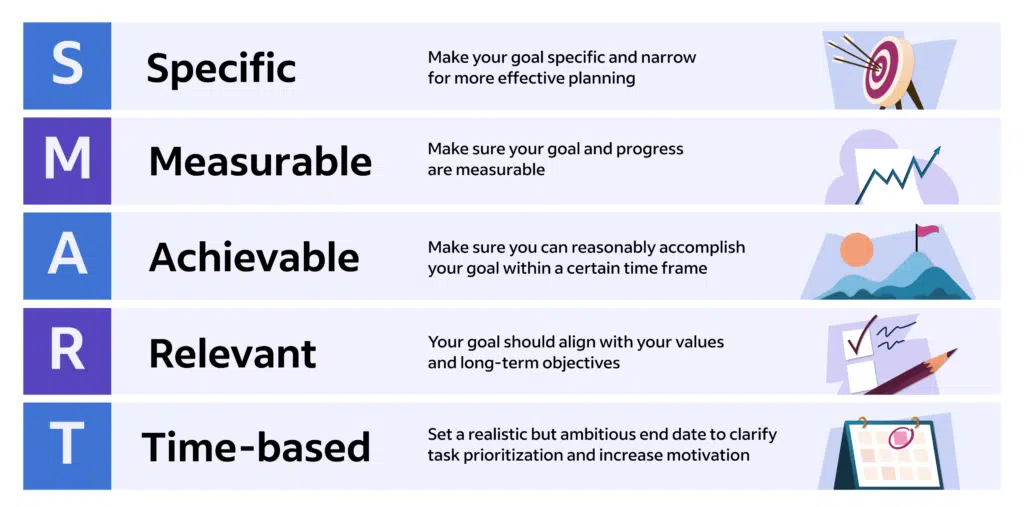Setting SMART Goals for productivity

goals should be straightforward, specific, and clearly defined. Having specific goals will help a business to focus and have a clear idea on what it wants to achieve. Being specific with goals also makes it easier to determine what steps need to be taken to achieve that goal.
with goal setting, businesses should know what criteria, or which metrics, they will use to measure their progress towards achieving a goal. Objectives should be quantifiable so that progress can be easily measured. For example, a business can measure quantitative objectives such as returns and outputs, or they can measure qualitative objectives such as the quality of returns and outputs.
it is important to set business goals that are realistic and attainable. A goal that is realistic will provide invaluable information about the business itself and its operations, rather than being something unachievable. Achievable goals also enable a business to trial best practices for reaching a goal, based on measurements.
businesses should set goals that align with the business’s objectives and visions. Relevancy will help a business to determine what should be done specifically for business growth. A business can identify whether a goal is relevant, by looking to see what benefit it brings to the business.
goals should have a deadline or timeframe within which they should be achieved. The process of planning and implementing goals will be more organised if there is a deadline. Deadlines work as a motivator and will encourage employees to work more efficiently.
